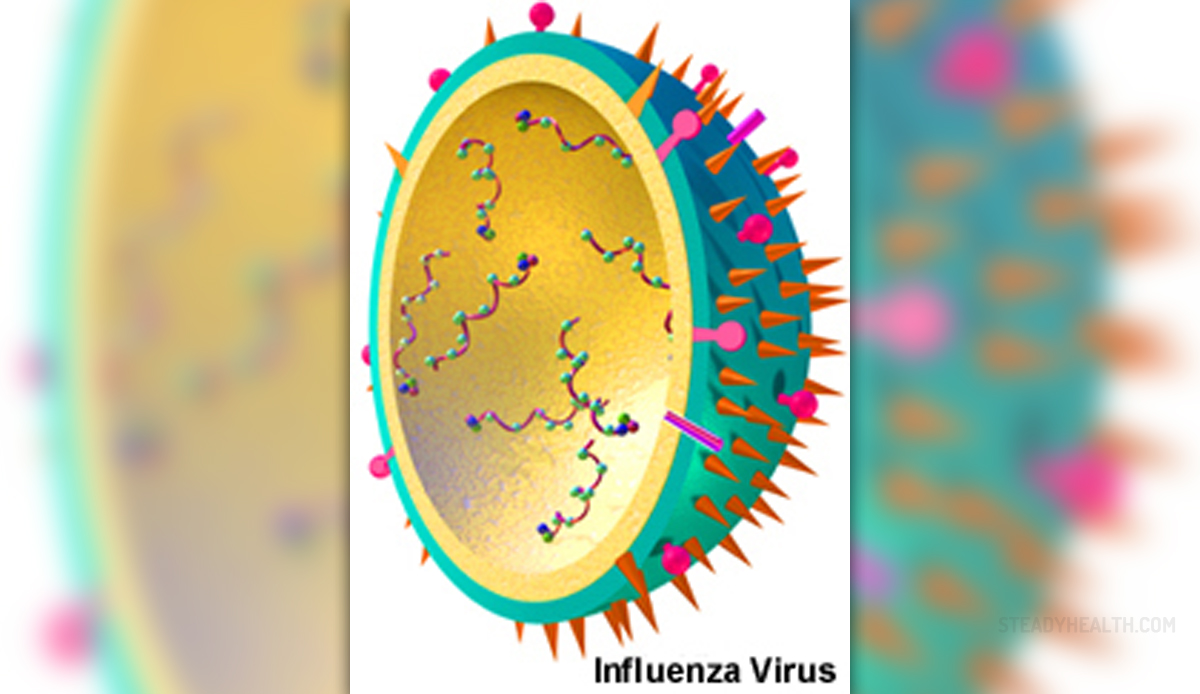
Influenza (also known as flu) is an infectious disease affecting people of all ages and individuals all over the world. The infection is caused by RNA virus, a member of the family Orthomyxoviridae. Influenza typically leads to fever accompanied by chills, sore throat, muscle pain, severe headache, dry cough and weakness. It is essential to differentiate influenza from other influenza-like illnesses such as the common cold. They are all caused by different types of viruses although their symptoms may be quite similar.Influenza - Transmission
The virus is easily contracted by being in close contact with infected individuals who cough and sneeze. Their secretions are rich in viral particles. It is also possible to develop influenza through contact with contaminated surfaces. Still, the majority of cases are actually a consequence of inhalation of airborne aerosols containing viral particles.
The virus is easily inactivated by soap, sunlight and frequent hand washing. Knowing the ways of transmission and ways of killing the virus, one may sometimes prevent infection from developing.
Influenza is generally a disease that occurs in seasonal epidemics. It is blamed for death of between 250,000 and 500,000 individuals each year. However, this might seem frightening but lethal outcome is basically reported in very young or old people as well as those already suffering from serious medical conditions, in whom the immune system cannot fight the illness properly.Vaccination against Influenza
Vaccination against influenza is not available for all people. The vaccine is available in developed countries. Experts have managed to create a trivalent influenza vaccine (TIV). This vaccine contains purified and inactivated infectious agents of all three types of the virus. This is a very efficient vaccine and since it contains inactivated and not alive viral parts it is not capable of causing infection itself.
Because the virus tends to evolve rapidly, the vaccine administered one year may not be efficient the following year. This is why each year doctors try to isolate the virus and create a new vaccine. There are also some antiviral drugs that can be prescribed for influenza. Tamiflu and Relenza are efficient against the virus if taken timely.Influenza - Types of the Virus
There are three types of Influenzavirus, type A, B and C. As for Influenzavirus A its hosts are wild aquatic birds but infection may be spread to domestic poultry and the virus may also affect humans and cause pandemics. Influenzavirus B affects humans only and is reported less than the previous type of the infection. It also mutates at a slower pace. Finally, there is Influenzavirus C, the one affecting humans, dogs and pigs. This virus may cause local epidemics and is also responsible for severe forms of the disease.

















Your thoughts on this
Loading...